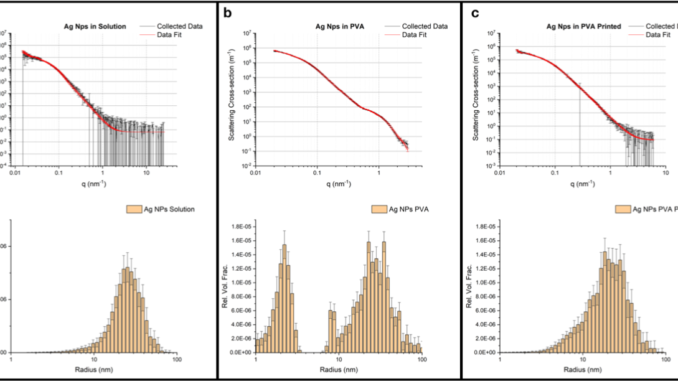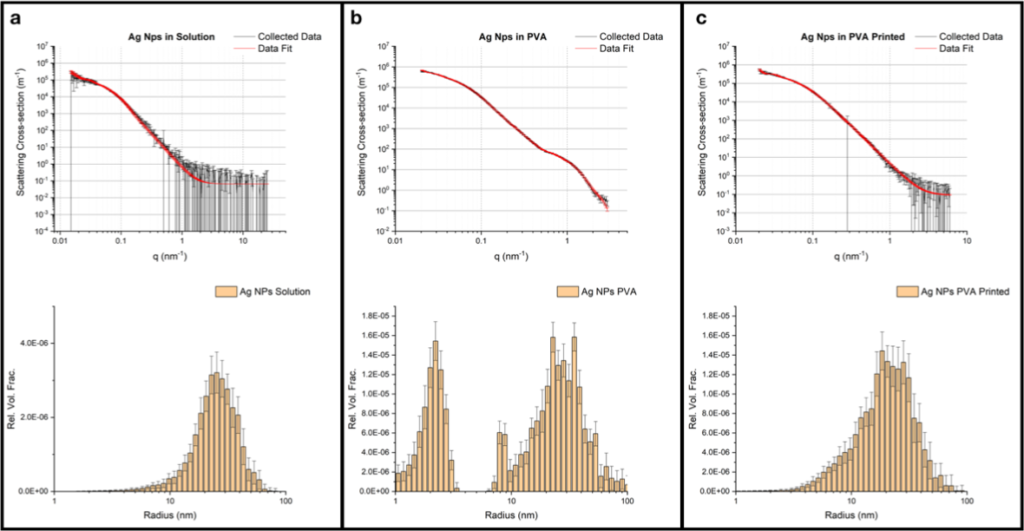
(In 2019, I stopped doing a post on every paper published due to workload and large numbers of papers that ended up with my name on it. However, I think it’s a tradition worth resurrecting, so here’s a series on 2020’s publications…)
The first paper of 2020 (https://doi.org/10.3762/bjnano.11.2) is on a topic that I am growing more fond of recently: nanomaterial composites. These materials tend to scatter well, can usually be adapted to the lab instrument’s requirements, but also benefit from our extensive data corrections. The composite in this paper’s no different. Here, researchers from Wageningen University (among which our contact: Dr. Vittorio Saggiomo) are researching methods for mixing in gold and silver nanoparticles into a thermoplastic polymer. This can then be 3D printed in standard filament printers.

It was one of our first forays into the field of scattering from nanomaterial composites. We managed to get volume fractions and size distributions out, but the data also confused us for a while as we saw a population of nanostructure that was not associated with the nanoparticles themselves. However, after delving into the synthesis procedure and noticing the large excess of PVP stabilizer, coupled with the density differences between PVP and the PVA matrix, we are now convinced that these are phase-separated PVP “particles” in the matrix. Coupled with a host of other analyses from symbiotic techniques, I like this paper very much. As an added bonus, I found out about the cool work that Vittorio does with inexpensive equipment in his laboratories!

Leave a Reply